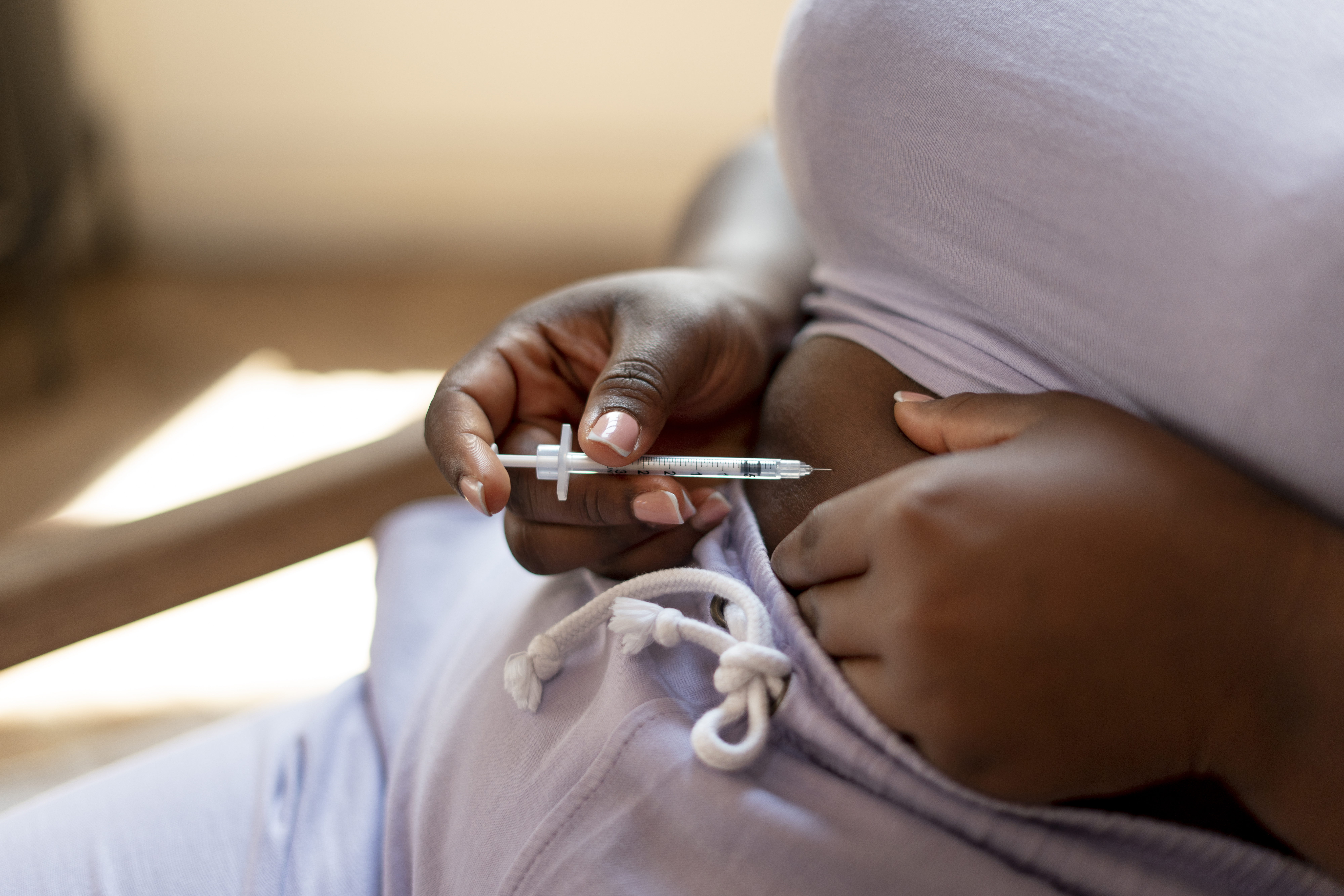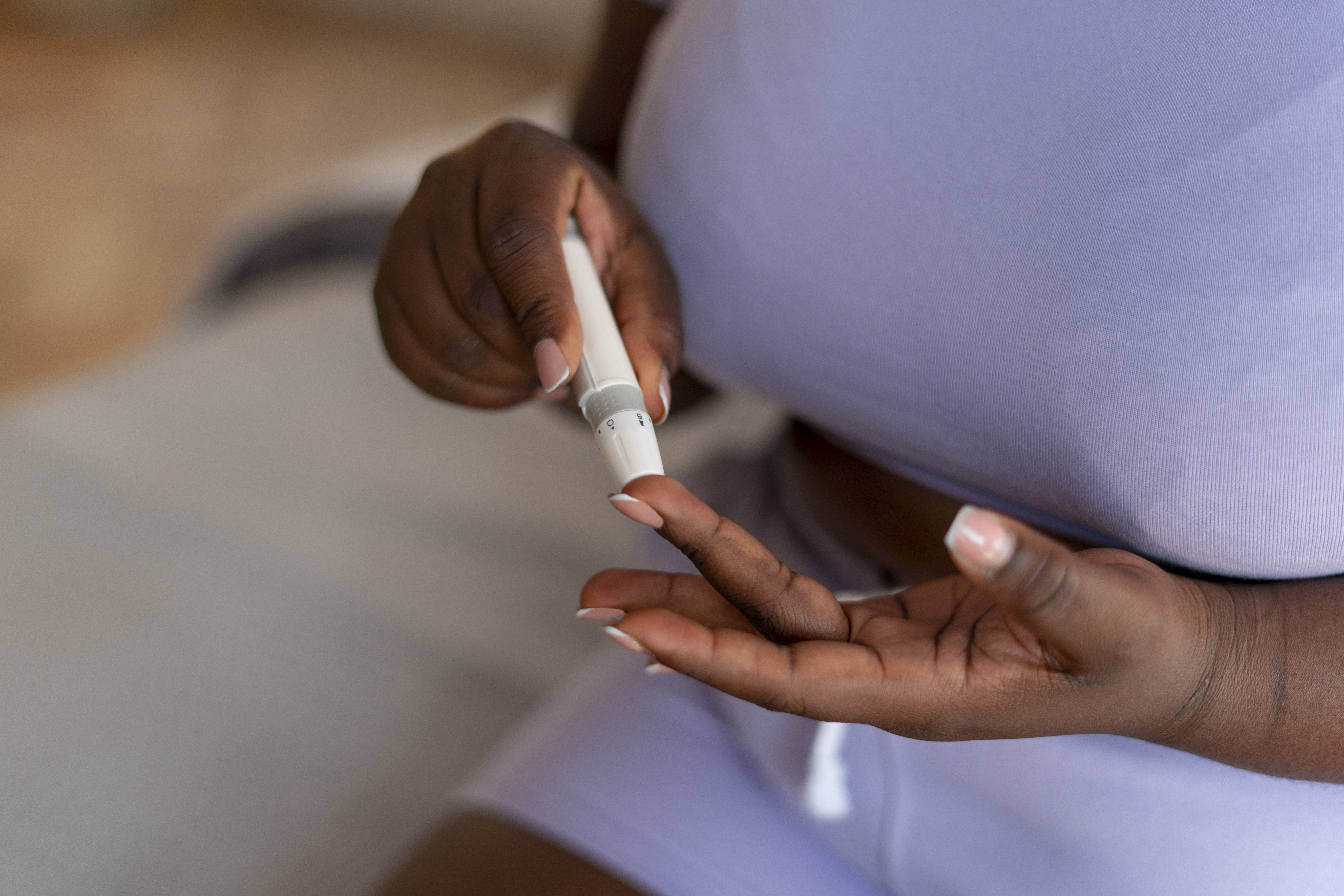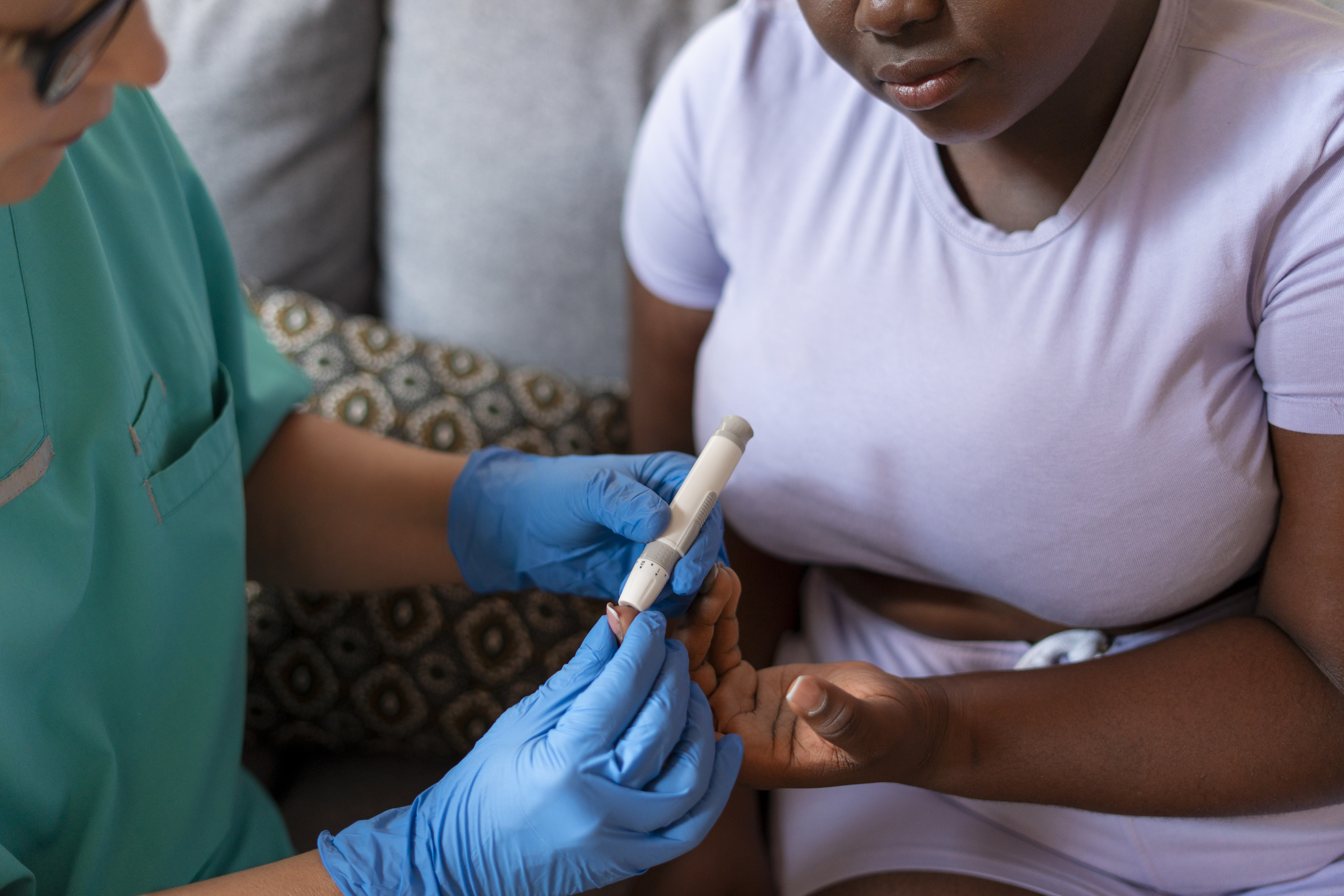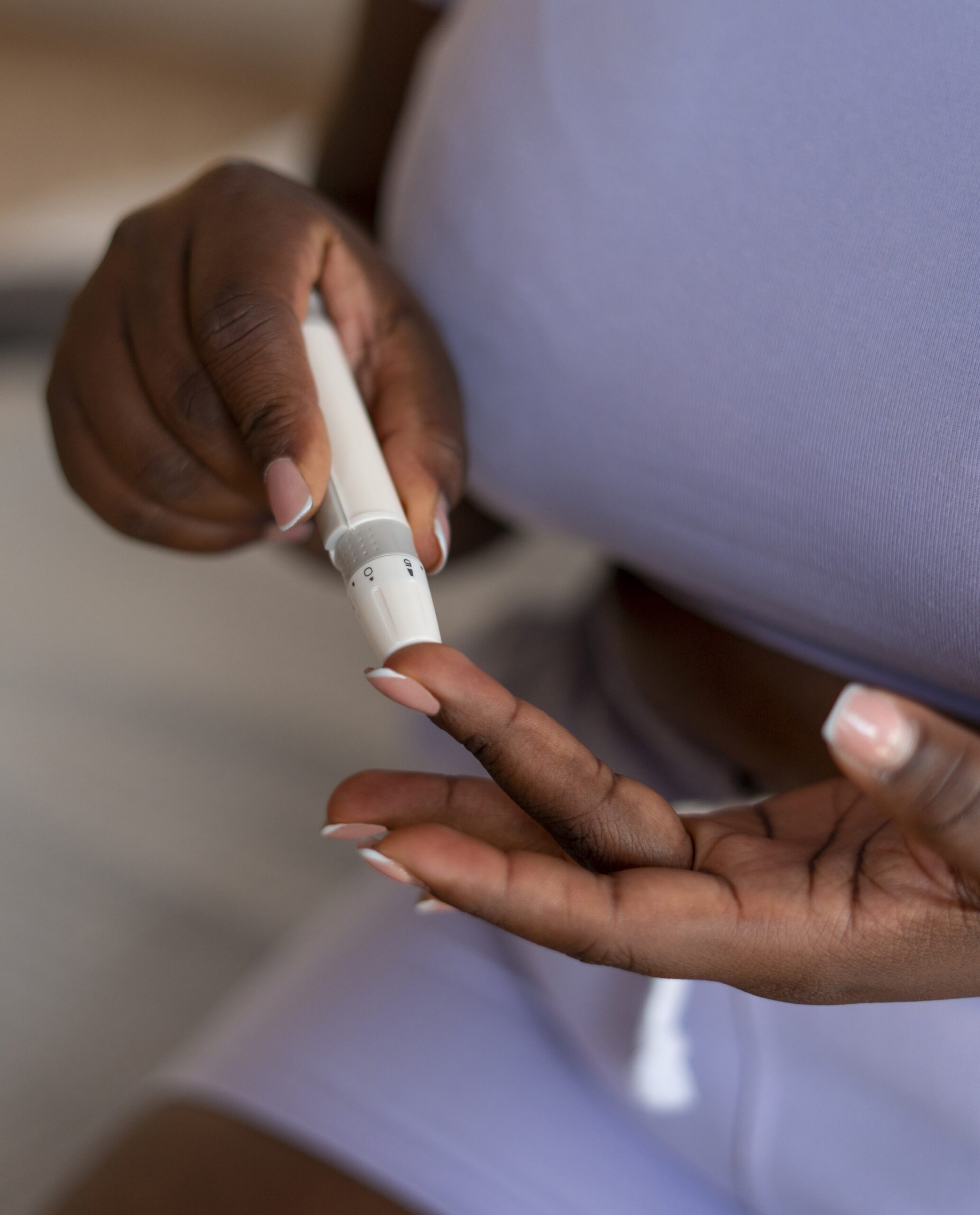Did you know that over eight million Nigerians are living with diabetes? Lifestyle habits, genetic factors, pancreatic damage, medications, hormonal imbalances, and alcohol are among the key culprits. Take a closer look at what is fuelling this health crisis and how to manage and prevent it.
[ad]
Rashidat Oyekiran lost her sister to diabetes, watching helplessly as her condition worsened from slow-healing wounds to a leg amputation. The amputation was supposedly a life-saving measure. Even that couldn’t save her.
READ ALSO: 8 healthy foods that reduce the risk of having Diabetes
The petty trader, now 62, is haunted by that memory as she fights her own battle with the disease. “I spend over ₦26,000 monthly for insulin injections. I still buy drugs every month too, I am tired.”
“I don’t want to end up like her,” she says, her voice full of worry.

For 55-year-old Arike Adewale, the journey began with fear and confusion. Bedridden and weak, she recalls, “I thought it was a spiritual attack.” She tried everything she knew. Traditional medicine to prayers did not move the needle. But only after her family rushed her to the hospital did she learn the truth: diabetes.
[ad]
Diabetes is a silent crisis—often mistaken, misunderstood, and underdiagnosed. For people like Rashidat and Arike, it is not just a health condition but a daily fight for survival.
Understanding diabetes
Diabetes is a chronic disease that occurs when the body doesn’t produce enough insulin or can’t use it properly, the World Health Organisation (WHO) said. Insulin is the hormone that helps regulate blood sugar levels by moving glucose from the bloodstream into cells for energy.
Type 1 diabetes is an autoimmune condition where the body’s immune system attacks the pancreas, stopping insulin production entirely. It is lifelong and often starts in youth.
[ad]
Type 2 diabetes occurs when the body does not produce enough insulin or cells don’t respond to it effectively. This type affects around 90% of people with diabetes and is often linked to lifestyle factors.
READ ALSO: World Diabetes Day: Lagos remain commited to public health enlightenment, says ministry
Gestational diabetes is diagnosed during pregnancy, usually in the second or third trimester, clinical nutritionist Odukoya Fiyinfoluwa tells Guardian Life. Symptoms are typically not noticeable, and healthcare providers test for it between 24 and 28 weeks of pregnancy.

A growing epidemic
According to the WHO, about 422 million people worldwide have diabetes, with the majority living in low- and middle-income countries. The global health body reports that 1.5 million deaths each year are directly linked to the disease, which has been steadily rising over the past few decades.
[ad]
In Nigeria, the situation is particularly alarming.
Dr Ejiofor Ugwu, the President of the Diabetes Association of Nigeria (DAN), estimates that about six to eight million Nigerians (5.7%) are currently living with diabetes. “This figure represents the tip of the iceberg, as two-thirds of these people are not yet diagnosed and are not aware,” he warns. “There are a lot of cases of diabetes hiding in Nigeria.”
The WHO Regional Office for Africa reports that Nigeria has the highest number of people living with diabetes in Sub-Saharan Africa. It attributes the prevalence to lifestyle changes caused by urbanisation, lack of exercise, unhealthy diets, tobacco use, and harmful alcohol consumption.
Globally, a new study also found that the number of people with diabetes has doubled over the past 30 years to more than 800 million worldwide. As a result, more than half of adults with diabetes—445 million (59%)—aged 30 and over did not receive treatment in 2022.
[ad]
Supporting this concern, Dr Oluwarotimi Olopade, Secretary-General of the Endocrine and Metabolism Society of Nigeria (EMSON), notes that recent studies in 2022 have shown an even higher prevalence.
“The prevalence of diabetes in Nigeria is increasing rapidly,” says Dr Olopade. “The recent study we did put it at 10.7%, and some other studies have corroborated that it is above 10%. So there is a big issue on our hands.”
Causes and risk factors
Diabetes has various causes, and individuals often have multiple risk factors. Unhealthy diets, particularly those high in sugary sweetened beverages (SSBs), are significant contributors, says Ugwu.
[ad]
“Anyone who develops diabetes, most of the time, has multiple risk factors,” he says. “So, it is difficult to quantify one particular risk factor to the development of diabetes.”
Other contributing factors include genetics, inactivity, environmental triggers such as certain viruses, pancreatic damage, hormonal imbalances, and long-term use of certain medications.
Dr Olusina Ajidahun, an internal medicine physician, said diabetes does not only impact the body’s ability to regulate sugar.
[ad]
READ ALSO: Nigeria may suffer five million diabetes cases by 2030, warns IDF
“It affects so many things in the body, and anybody can have diabetes—a baby can have it,” he explains. “Our lifestyle—what we eat, having people work remotely, obesity—is a big risk factor, especially for type 2. Putting all these things together has led to the increase of people living with diabetes.”

Symptoms and hidden dangers
It is often called a “silent killer” because many people are unaware they have it until complications arise. Studies have shown that diabetes can lead to numerous health complications, including heart attacks, strokes, kidney failure, vision loss, foot problems leading to amputations, nerve damage, gum disease, tooth decay, skin conditions, hearing impairment, sleep apnoea, and even dementia.
Common symptoms of diabetes include increased thirst, frequent urination, excessive hunger, blurry vision, fatigue, numbness or tingling in the extremities, slow-healing sores, and unexplained weight loss.
[ad]
Managing diabetes
Managing it requires a combination of lifestyle changes, medications, and self-care measures.
Fiyinfoluwa says an active lifestyle and sleeping well, among others, can help improve the fight against diabetes. “When managing type 2 diabetes, the first thing to focus on is fibre. Fibre is one of the things that can help reduce the rate at which your blood sugar levels spike,” he advises.
Experts say eating a balanced diet rich in whole grains, vegetables, fruits, lean proteins, nuts, and seeds, while limiting fats, oils, and sugary foods can help improve health.
[ad]
They also recommend engaging in at least 150 minutes of moderate to vigorous aerobic exercise per week, such as walking, running, biking, or swimming is advisable. Adding two to three resistance training sessions per week, like weightlifting or yoga, can also be beneficial.

READ ALSO: These 6 things can cause diabetes
Quitting negative habits such as smoking, ensuring adequate sleep, proper weight management, and stress management are also advised by experts.
Oral medications, insulin injections, or other types of diabetes medicine can help control blood sugar levels. It is essential to consult healthcare professionals for personalised treatment plans.
[ad]
Patients must also keep track of blood sugar levels, blood pressure, and cholesterol to manage the condition effectively.
For women with it, preconception counselling is vital to reduce the risk of congenital malformations.
The Ozempic dilemma
An emerging issue in diabetes management is the misuse of medications like Ozempic (semaglutide). Ozempic is prescribed to people with type 2 diabetes to lower blood sugar levels and reduce the risk of cardiovascular events. It also suppresses appetite, leading to weight loss.
However, the increasing off-label use of Ozempic for weight loss in non-diabetic individuals has led to higher demand, shortages, and falsified products entering the market.
[ad]
In June, the WHO warned about falsified medicines used for its treatment and weight loss, including falsified batches of Ozempic detected in Brazil, the UK, and the USA.
“WHO advises healthcare professionals, regulatory authorities, and the public to be aware of these falsified batches of medicines,” said Dr Yukiko Nakatani, the WHO Assistant Director-General for Access to Medicines and Health Products. “These falsified products could have harmful effects on people’s health.”

Most semaglutide products must be injected under the skin every week, but they are also available as tablets taken by mouth daily.
[ad]
READ ALSO: Over 24m adults living with diabetes in Africa, says WHO
Building a supportive environment
For those without it, especially children and young adults, preventive measures are essential to curb the rising incidence of type 2 diabetes.
Families adopting healthy lifestyles together reinforce positive behaviours. Preparing balanced meals at home and engaging in physical activities as a family not only promotes health but also strengthens familial bonds.
Regular medical check-ups are important for early detection and intervention, especially for individuals with a family history of diabetes or other risk factors.
[ad]







